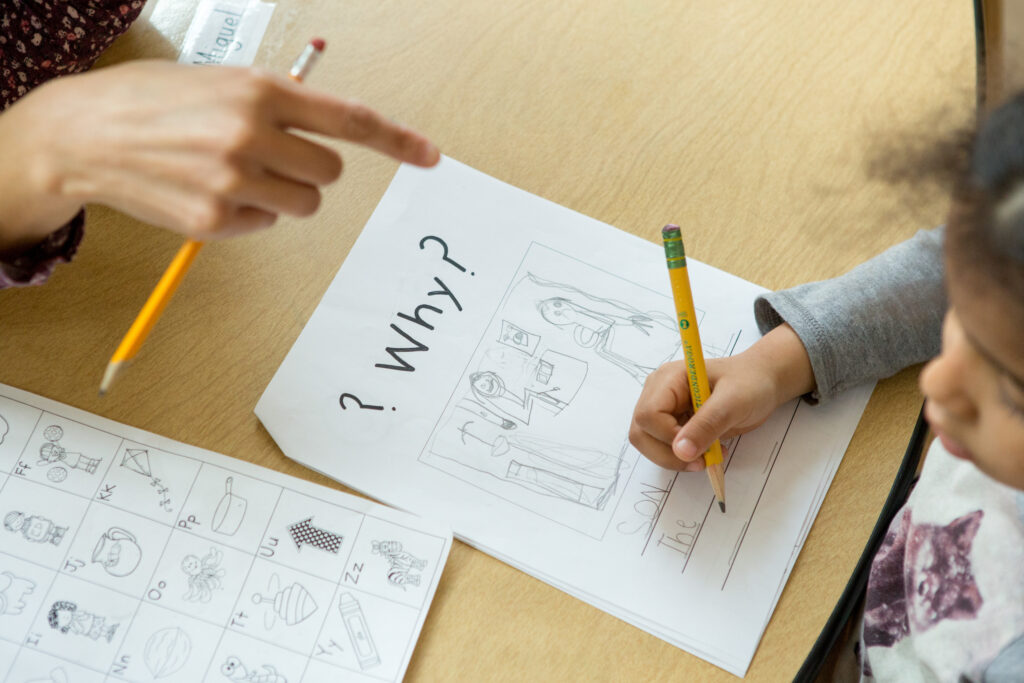Emotions can be one of the most serious barriers to critical thinking. When people are engaged in emotional reasoning, they often fall for weak logic, engage in ad hominem attacks, or plainly ignore evidence contrary to their point of view.
Lately, there’s been ample evidence of this kind of emotional reasoning online, including people at the top of their professions in politics, business, and elsewhere. Harvard law professor Laurence Tribe recently retweeted a manufactured “news” story about Trump and Haiti. Or take Elon Musk. His Twitter gaffes include one tweet that cost him and his company $40 million.
Emotions can heighten our ability to reason well, if we channel them in the right ways. Indeed, what’s often called “emotional intelligence” is a crucial and necessary component of critical thinking.

But let’s be honest. We’re all guilty. Blame work, blame life, but it’s easy to be too emotionally clouded. And just about everyone has suffered from overly emotional reasoning at some point. Ask anyone who jumps from one lane to the next during a traffic jam. They don’t get to their location any faster — they’re just trying to manage their frustration by switching lanes.
But it’s perhaps less obvious that emotions can also heighten our ability to reason well, if we channel them in the right ways. Indeed, what’s often called “emotional intelligence” is a crucial and necessary component of critical thinking.
In this column, I’ll discuss the dangers of emotional reasoning and the cognitive benefits that well-managed emotions can provide. The bottom line is that better thinking requires managing emotions and learning to channel them in productive ways.
How Emotions Can Elevate Thinking
Everyone has emotions. They are central to nearly every aspect of our lives. Indeed, emotions often make life worth living, from feelings of love and affection to the bliss of happiness to the excitement of playing a game.
Yet people tend to think that emotion is a problem for clear thinking. They believe that the best thinking is done bloodlessly, without emotion and from a purely rational point of view. But the truth is more complicated. Emotions can cloud our judgment, but they are also absolutely essential to good thinking.
Take snap judgments, for instance. As a long body of research has shown, experts often rely on intuitive hunches. Those hunches can be highly effective, allowing the experts to quickly reason through problems. As Daniel Kahneman, author of Thinking, Fast and Slow, argues, most of the time intuition works pretty well.
Good critical thinking requires not just abilities — for example, in analyzing arguments or researching information — but also the right motivation. The anger people feel at an injustice, for example, can spark a critical investigation and help them put together a compelling argument to help remedy the situation.

What’s more, emotions are a central part of many social structures. They give us our moral compass and help society function. As the economist Robert Frank showed in his influential 1988 book, Passions Within Reason, behaving in a purely rational way has clear limits.
For example, it may be “more rational” to cheat in a card game to maximize gain, but the emotion of guilt prevents most of us from doing so. As Frank argues, the guilt that stops us from cheating actually creates a sense of commitment that makes us more trustworthy to others. This trust can ultimately lead to benefits greater than those gained by cheating.
Finally, emotion provides motivation. Good critical thinking requires not just abilities — in analyzing arguments or researching information — but also the right motivation. The anger people feel at an injustice, for example, can spark a critical investigation and help them put together a compelling argument to help remedy the situation.
In short, we shouldn’t always avoid emotional reactions. Rather, people should be encouraged to manage their emotions and channel them in productive ways.
How Emotions Can Hinder Thinking
Despite the power of emotions, they can be a flawed guide when it comes to interpreting our environment, making judgments, and sorting out truth from falsehood.
Part of the reason is that our emotional system evolved to prepare us for things like running away from saber-tooth tigers. Thankfully, today, most of us no longer have to worry about fleeing wild animals.
For evolutionary purposes, however, our bodies still engage in certain fight-or-flight emotional responses. People experience these reactions even when they aren’t necessarily helpful — in the office, for example, or talking politics with friends and family.
Clickbait works because it plays on our emotions. Our attention naturally goes to content that exercises our feelings rather than our rational faculties.

Children are particularly liable to engage in emotional reasoning. This is a normal part of their development. Toddlers, as we all know, throw frequent tantrums, often about insignificant things, like where everyone is sitting at the dinner table.
But even as adults, emotions get in the way of clear thinking. Like everyone, I experience the urge to click on superficial headlines like “You won’t believe why police arrested this 102-year-old woman.”
Why does this happen? Why do I want to read more? Well, clickbait works because it plays on our emotions. Our attention is naturally drawn to content that exercises our feelings rather than our rational faculties.
This goes back to the idea that our emotional reactions are often the product of evolutionary adaptations that helped our earliest ancestors survive. For early ancestors, being drawn to something loud and flashy or just curious could be the difference between life and death. For us today, these loud, flashy things are often a waste of time.
How Can We Overcome Emotional Reasoning?
Fortunately, there is a great deal that can we can do to resist unproductive emotional reasoning and to harness our emotions to the benefit of our thinking.
The key is to recognize emotional reasoning when it happens and to take time to reevaluate and come to a more rational interpretation of what’s going on.
This is among the techniques of cognitive behavioral therapy, or CBT— which has been successful in treating a variety of mental health problems. For example, experts in the approach argue that some of our worst thinking is the result of all-or-nothing thinking. So people think: If I don’t get this job interview, my life will be over. Instead, CBT counsels people to think in shades of gray instead of black and white. So a better and more accurate form of thinking would be: If I don’t get this job interview, I’ll probably find another opportunity.
By Helen Lee Bouygues, President of the Reboot Foundation




